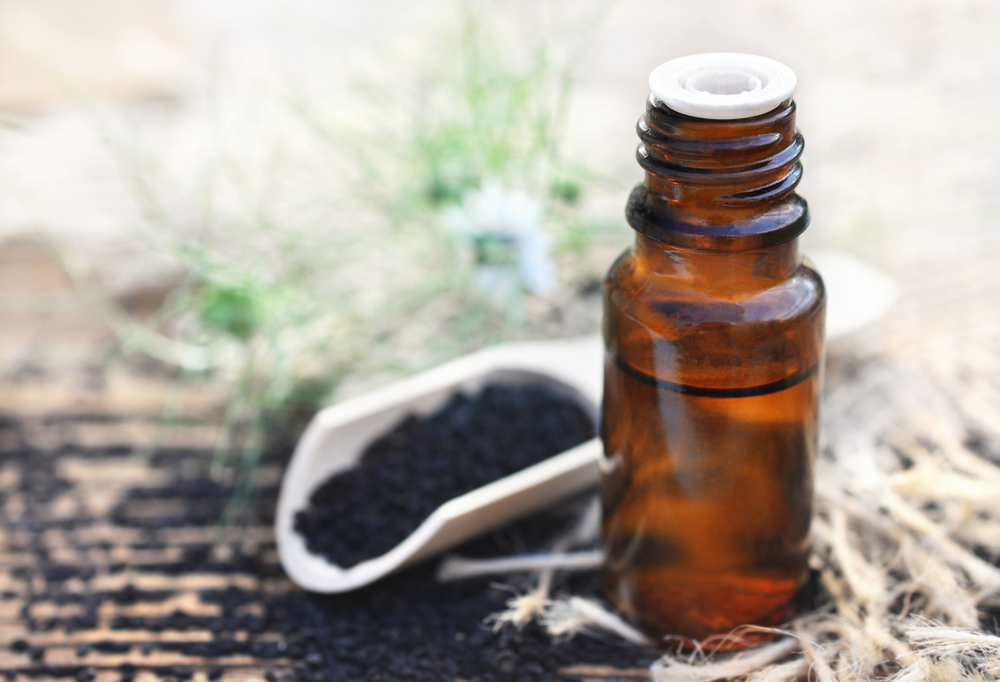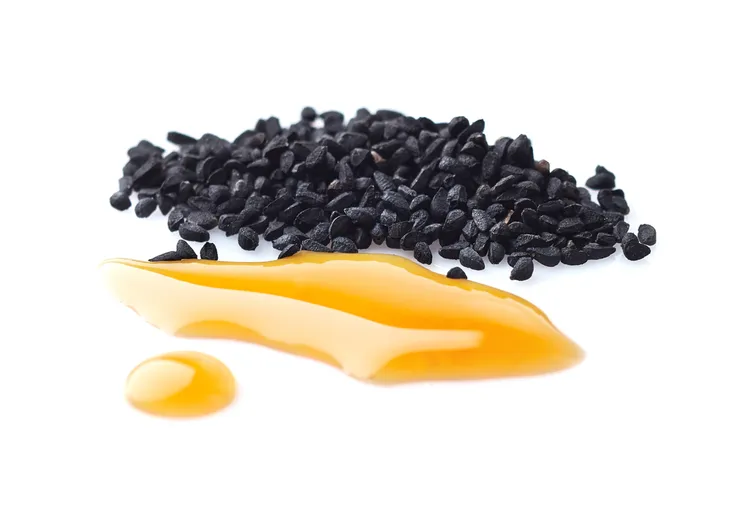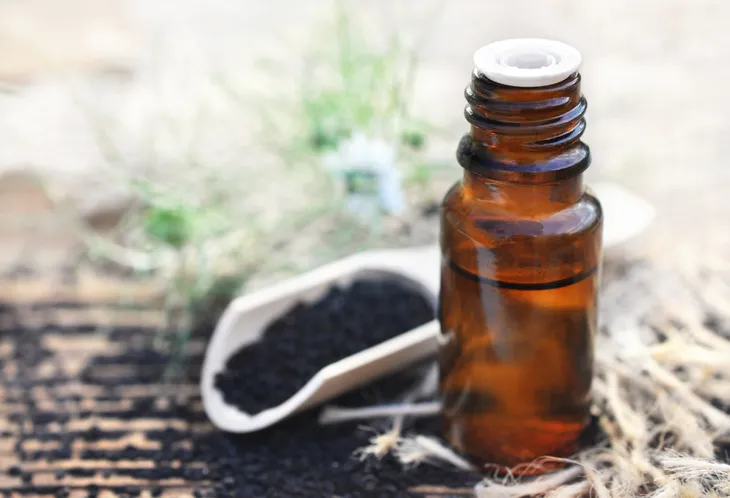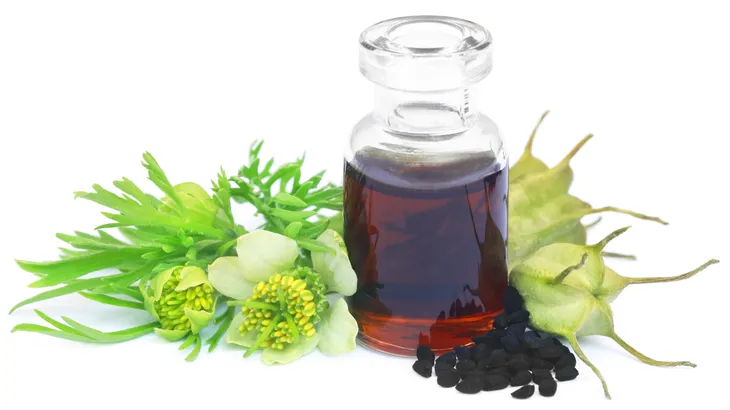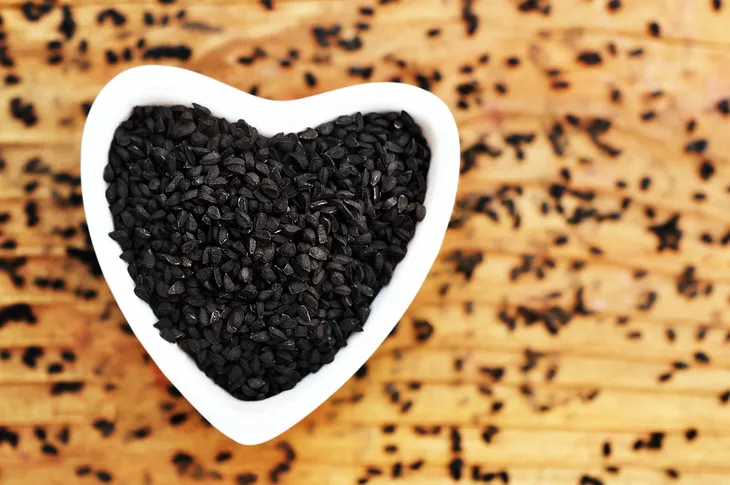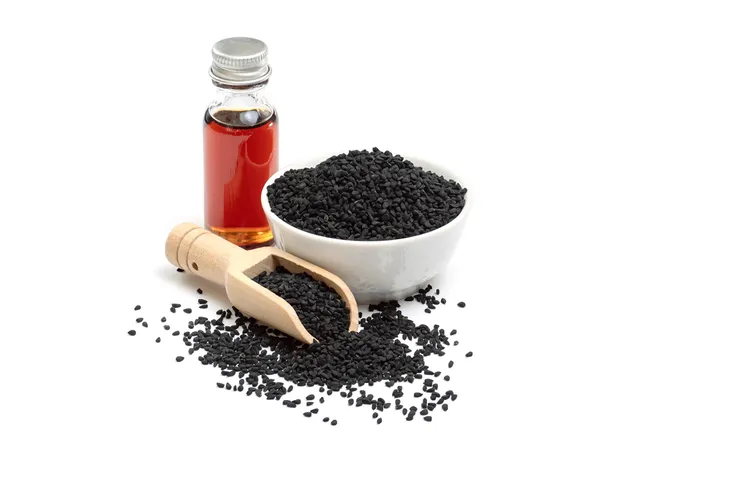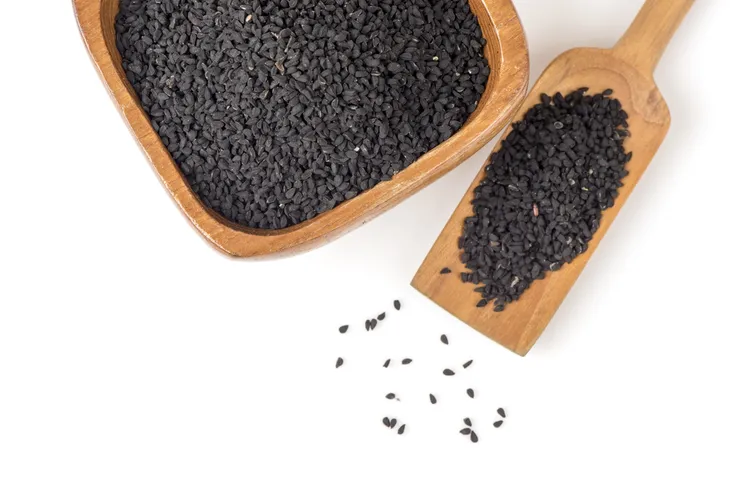First off, let’s clarify what black seed oil is for those who may not be familiar. It is the product of seeds from the black cumin plant (also known as black caraway and fennel flower). The oil itself is referred to in other ways – including black cumin seed oil, Kalonji oil, and Nigella sativa oil, according to VeryWell Health.
The same source explains that the “slightly bitter” seeds are typically used for flavoring in Middle Eastern or Indian dishes, while the oil is also useful in cooking – while also carrying a range of health benefits thanks to antioxidants including thymoquinone. In fact, the source claims that the oil has been used a remedy for common conditions for more than 2,000-years (and is now backed by some scientific evidence).
Let’s take a look at some of these benefits…
Combating Asthma
According to Healthline, this oil is apparently useful for those who suffer from asthma, a chronic respiratory illness. The source explains that the antioxidant thymoquinone has been shown through research that it can help reduce inflammation and relax airway muscles.
It notes a study of 80-adults with asthma found that consuming 500-mg of black seed oil capsules twice daily for about a month led to “significantly improved asthma control.” However, it adds that more research is needed to assess the effectiveness and long-term safety of the oil in the treatment of this particular condition.
Treatment of Skin Conditions
Medical News Today explains that the use of black seed oil could be useful for those with common skin conditions. Among these conditions is eczema, which was shown by a “small-scale” study to reduce the severity of the condition on the hands in particular.
Meanwhile, the source notes that research has shown the anti-inflammatory properties of the oil can be helpful in the fight against acne, with 58-percent of participants in the study rating the results as “good.” It also notes it may be helpful for psoriasis, but only mentions a study on mice.
Controlling Diabetes
Dr. Axe says that Nigella sativa is “one of the few substances on the planet that is suggested to help prevent both type 1 and type 2 diabetes.” It cites research from the Indian Council of Medical Research that suggests black seed oil can help regenerate pancreatic beta-cells (that secrete the hormone that controls blood sugar) and helps reduce the elevated blood serum glucose associated with the disease.
The source continues by noting the study also found black seed oil to be as effective as metformin (a medication used to manage type-2 diabetes) without any significant side effects. That’s in contrast to side effects from the drug, which includes headaches, muscle pain, indigestion and more, according to the source.
Aiding In Weight Maintenance
Those who have been advised by a doctor to lose weight or are tackling their own weight-loss goals may find black seed oil as an ally in their efforts. MindBodyGreen explains that there’s actual research to back up the weight-controlling properties of the oil.
The 8-week study it cites suggests women who consumed black seed oil vs. a placebo “experienced greater reductions in weight and waist circumference.” However, it stresses that black seed oil is not a “magic bullet” for weight loss, but rather that it can help reduce inflammation (thanks to antioxidants) that is related to obesity.
Reducing Allergy Symptoms
VeryWell Health says that black seed oil can help provide some relief to those suffering from allergies, more specifically those relating to nasal inflammation. It points to a study published in the American Journal of Otolaryngology that suggests consumption of the oil for 2-weeks helps reduce nasal congestion along with itching and sneezing.
It points to another more recent report that suggests the oil may help combat sinusitis (inflammation of the lining of the sinuses, often caused by an infection). It notes that the oil has “therapeutic potential” in treating this common condition thanks to its anti-inflammatory and antihistamine properties.
Regulating Blood Pressure
High blood pressure has been called “the silent killer” as it doesn’t typically present any symptoms until it results in a health episode. However, Healthline says that a study of 70 otherwise healthy adults suggests taking 0.5-teaspoons of black seed oil twice a day for 8-weeks “significantly reduced blood pressure levels, compared with a placebo.”
Meanwhile, the source also cites other studies that show the oil can help lower bad cholesterol (and overall levels) that are associated with heart disease. One of the studies involving 90-people with high cholesterol shows that consuming 2-tablespoons of the oil following breakfast for 6-weeks lowered LDL (bad cholesterol) levels. However, it also notes more research is needed for these benefits and to determine the optimal dose.
Relieving Rheumatoid Arthritis
Rheumatoid arthritis (RA) is an autoimmune disease that affects the joints. However, it seems that black seed oil may be effective in helping to manage this condition, at least according to a small study published in Immunological Investigations cited by VeryWell Health.
The study involved 43-women with “mild to moderate” RA that took either a placebo or a black seed oil capsule daily for a month. The results, according to the source, were a reduction in symptoms for those who took the oil, as well as reduced inflammatory markers in the blood.
Improving Male Fertility
Men struggling with fertility issues may be able to turn to black seed oil, at least according to Dr. Axe. It notes that a randomized, double-blind, placebo-controlled clinical trial in infertile males shows promise.
It adds that a control group consumed 2.5-ml of the oil, compared with a placebo group that received an equal amount of liquid paraffin – twice a day for 2-months. The results, says the source, is that the group who took the oil had improved sperm counts, as well as improvements to sperm motility and semen volume.
Potential Brain Benefits
According to Healthline, early test-tube and animal research suggests thymoquinone in black seed oil may reduce neuroinflammation, which is “thought to play an important role in the development of diseases like Alzheimer’s and Parkinson’s.”
The source also points to a study of 40-healthy adults (including a placebo group) that suggests taking 500-mg of the Nigella sativa capsules 2-times a day for 9-weeks resulted in “significant improvements” in memory, attention span, and cognitive ability. In both instances, the source says more research is needed to confirm these benefits.
